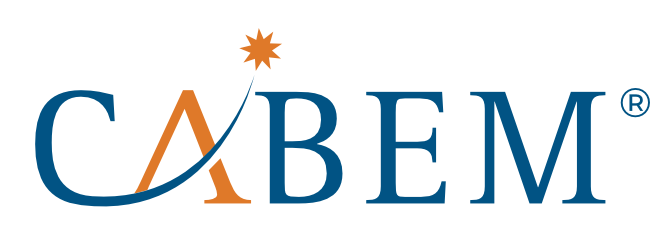It’s no secret that millennials are a growing generation in the workforce. Defined as being born between 1981 and 1996, they recently became the largest labor force in the United States.
Millennials bring a different attitude to the workplace than prior generations, and with that, new challenges for businesses and their leadership. Management must learn to adopt new core competencies and ways of guiding these new employees. Focusing on competency management can be an effective way to do this.
The Millennial Generation in the Workplace

In an article on Workforce.com, Bill Passmore and Sylvester Taylor wrote about how the new generational preferences are forcing leaders to adjust their core competencies.
They stated, “Millennials are looking for challenging assignments that provide opportunities for learning and growth. As only about 13 percent of the workforce is highly engaged, there is much work to be done.” While on the surface this generation seems less engaged, they also noted that the generation doesn’t want to leave their current jobs necessarily, but instead are seeking more opportunities to grow where they currently work.
If you have young people in your department, you should be aware of their workplace preferences. Some of these include:
- Transparency in pathways to career advancement
- A more flexible work environment
- Mentorship from their superiors
- Gamification elements in workforce training
- Strong workplace culture and emphasis on social impact
- Public recognition for their workplace accomplishments
A competency management system can help a company better integrate these preferences and more engaging methods of learning and development. This group of young, energetic, and passionate employees can be a big benefit to any organization.
Retaining Millennial Employees Throughout their Career

Much has been written about the new generation’s job-hopping. According to CareerBuilder, employers expect 45% of their newly hired college grads to leave after two years, and the study also showed that by age 35, about 25% of young employees will have worked five jobs. The stigma that may have accompanied job-hopping for previous generations no longer applies.
But as stated above, millennials will stay if they feel they have opportunities to grow. Outlining job-specific competencies, defined as the hard and soft skills required for specific jobs within the organization, can help to engage them. A study of the Canadian workplace identified “quick advancement” as being essential, and according to Forbes, this desire is even ahead of the compensation level.
Companies that can show career pathways for advancement will be able to retain their current young workforce better. Competency management can assist you with this process, by benchmarking milestones for training, promotion, and increases in salaries. It also can help make transparent the skills and experience required for advanced roles that a young employee may want to aspire to. This could be a role on their current path or a lateral move into a new function or department within the organization.
This is because another preference is the ability to learn from a variety of disciplines. According to a Forbes article on managing millennials, they “are especially motivated by dynamic, cross-functional positions.”
Companies with a flat structure or at least cross-functional roles will do better in attracting and retaining these employees. A competency management system can assist in this by tracking skills required for multiple positions, and give individuals the ability to access and complete optional learning activities if they have the motivation to.
Work-Life Balance

The millennial generation views work-life balance very differently than their predecessors. They want a more flexible work environment and many don’t want to adhere to the traditional 9-5 structure. A study by Canadian Business stated that 70% of millennials would prefer to work remotely.
Many companies are experimenting with various workday structures, such as half days on Fridays, working from home one day a week, and some companies even operate 100% remotely. Not that every company needs to go this far, but don’t be afraid to experiment with your work schedule and options, as your younger employees will thank you for it.
Incorporate Mentorship into Your Organization
Millennials value growth opportunities, and for this reason, would rather have a mentor-mentee relationship than a traditional boss-employee one. A leader who can practice empathy, guidance, and nurture a millennial throughout their career will gain his or her loyalty.
This generation appreciates positive reinforcement and does better with more frequent check-ins with constructive criticism and praise as appropriate. The traditional annual review is not as effective, and according to Inc, they prefer “regular feedback – and mentoring to learn, grow, stretch, and improve.”
Keep in mind that a mentor does not have to be an employee’s direct superior either, and often it’s better if this is not the case. Establish a structure of mentorship within your company using a competency software system if you can, and assign mentors as a learning method to new employees. The extra attention and relationship-building will not only help prevent them from leaving but will nurture them into even more effective and fully competent workers.
Gamification of Competencies and Trainings

Millennials grew up playing video games, and another tactic that can help teach this generation is through the process of gamification.
This technique is defined as “the application of game theory concepts and techniques to non-game activities” by TechTarget. And according to LMS provider Docebo, one strategy to teach millennials effectively is to “build out a gamification model that maps competencies into tangible elements. Using leaderboards, badges, points, a little bit of your travel budget, and some departmental goodwill, you can build a full competency management program that can motivate your learners.”
While assigning badges or points to skills can work, organizations can get more creative with their rewards. One of the current clients of our own competency management system, the Competency Manager, assigns points based on community service hours taken by employees and rewards them with gift cards when they reach certain hour-thresholds.
Gamification is an example of a company finding creative ways to engage and motivate millennials, giving them positive reinforcement for advancing, and showing them that this learning can be exciting.
Social Impact and Strong Workplace Culture

Millennials do not simply want a place to work to earn money but to contribute positively to the world and make an impact. They are idealistic and driven by a sense of purpose and desire to make a difference. They prioritize companies that either have a mission of social good, such as a charity or other non-profit, or companies that have programs in place such as volunteering to contribute in other ways. The 2016 Millennial Impact Report stated that 46% of responders had volunteered within the past month.
And Deloitte’s Global Human Capital Trends 2015 showed that millennials want to be part of something bigger than themselves. In a world where a sense of a deeper mission inspires more than half the workforce, core competencies can be transformative. Core competencies define the fundamental values and strengths shared by the entire organization, going deeper than the basic skills required to be a good employee. These competencies are likely a part of a millennial’s life outside of work, and he or she will value the company even more if they are also a part of work life.
Public Recognition of Accomplishments

Millennials have grown up expecting to be recognized for their accomplishments. Whether it’s the “8th place trophies” from Little League or the constant assurance from social media likes, they want to be noticed. While it’s easy to look at this as a negative attribute, it can be turned into a positive. As mentioned earlier, gamification can inspire employees internally to achieve more. And externally, millennial employees can be your best brand ambassadors. Involve them in company-wide seminars, workshops, networking events, etc. that they are passionate about, and they will be happy to share pictures, videos, and more online to their social networks.
Social media is the glue that holds them together, it is their means of communication. And as a young person meets a particular milestone in work, encouraging that he or she advertises this through Twitter, Facebook or Instagram will let friends know about their career success, and further motivate the employee. It also may attract friends and other people in that person’s network to join the company or consume its content and products.
Leadership Competencies Need to Change with the Workforce

The takeaway is that the workforce is changing, and the way we define leadership needs to change with it. Our workplaces are filling up with high-potential, high-expectation millennials who bring a wealth of energy, enthusiasm, and ideas, but without the right leadership to nurture and retain them, they won’t stay long. HRSG (Human Resource Systems Group) reported that “a competency-based approach to talent management can help facilitate a shift towards a more millennial-friendly culture in several ways.”
Competency management is the new method of learning development that is most effective for the new generation in the workforce. It is appealing because it takes into account soft skills and opportunities for growth within an organization in a more comprehensive way. While leadership competencies such as “Embracing Diversity” or “Using Empathy” may seem unnecessary or hard to prove the ROI, it is these types of skills that millennials want to learn and value in others.
Competency management software can also help to promote transparency and collaboration within the organization. And if a young employee can easily see a future within the organization, he or she is less likely to leave it. There are many other ways a competency management system can benefit an organization’s employees, young or old. To find out more about our solution, visit our website.
In conclusion, if your company is dedicated to retaining the young and ambitious millennials in your workforce, choosing competency management software can help you develop and retain them.
Other articles that may interest you:

